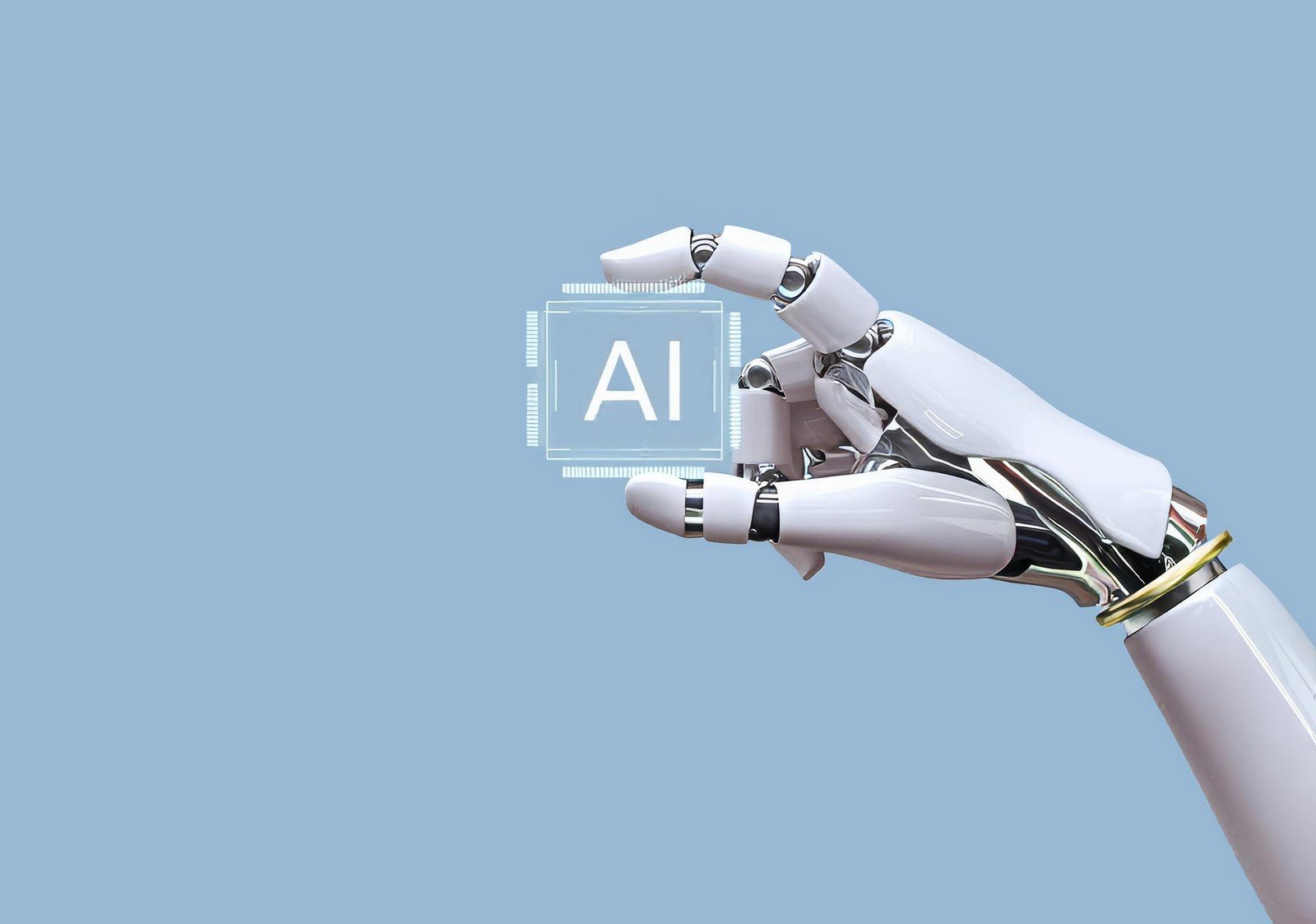Artificial Intelligence (AI)

Quick Navigation:
- Artificial Intelligence Definition
- Artificial Intelligence Explained Easy
- Artificial Intelligence Origin
- Artificial Intelligence Etymology
- Artificial Intelligence Usage Trends
- Artificial Intelligence Usage
- Artificial Intelligence Examples in Context
- Artificial Intelligence FAQ
- Artificial Intelligence Related Words
Artificial Intelligence Definition
Artificial Intelligence (AI) is the branch of computer science focused on creating systems capable of performing tasks that typically require human intelligence. These tasks include learning from data, recognizing patterns, solving problems, making decisions, and understanding natural language. Technically, AI involves algorithms and models, such as machine learning, deep learning, and neural networks, that allow machines to process and analyze large amounts of data, adapting and improving over time.
Artificial Intelligence Explained Easy
Imagine you have a toy robot that can learn to play your favorite games or help you solve puzzles. That toy doesn’t have a real brain like yours, but it uses special instructions and learns from what you do to get smarter. Artificial Intelligence is like making computers and robots behave in smart ways, almost as if they have a tiny brain that learns and thinks by itself.
Artificial Intelligence Origin
The concept of machines imitating human thought dates back to ancient myths and early mechanical inventions. However, modern AI’s roots trace to the 1950s when computer scientists, including John McCarthy, coined the term “Artificial Intelligence” and began formal research. The field has evolved through stages of optimism, funding cuts (known as AI winters), and breakthroughs, leading to today's advanced applications in various industries.
Artificial Intelligence Etymology
The term comes from the combination of ‘artificial,’ meaning made or produced by human beings rather than occurring naturally, and ‘intelligence,’ which refers to the ability to acquire and apply knowledge and skills.
Artificial Intelligence Usage Trends
Artificial Intelligence has seen exponential growth in use since the 2010s, driven by advancements in computing power, the availability of big data, and breakthroughs in algorithms. Its usage spans industries like healthcare for diagnostic tools, finance for predictive analytics, autonomous vehicles in transportation, and voice assistants in consumer technology. With the rise of generative AI models in recent years, public awareness and application diversity have surged.
Artificial Intelligence Usage
- Formal/Technical Tagging: AI, machine learning, deep learning, neural networks, intelligent systems
- Typical Collocations: artificial intelligence system, AI algorithms, machine learning model, deep learning network, intelligent software, AI-powered tools
Artificial Intelligence Examples in Context
- "Many companies now rely on AI algorithms to streamline their customer service through chatbots."
- "With the aid of deep learning, artificial intelligence has enabled significant advancements in voice recognition technology."
Artificial Intelligence FAQ
- What is artificial intelligence?
Artificial intelligence refers to machines designed to mimic human intelligence and perform tasks that typically require human thought. - How does AI learn?
AI learns through data and algorithms that enable it to find patterns, make decisions, and improve over time. - What are some common types of AI?
Common types include narrow AI (specialized tasks), machine learning, and deep learning. - Is AI the same as machine learning?
No, machine learning is a subset of AI focused on systems that learn and adapt without explicit programming. - Can AI replace human jobs?
AI can automate certain tasks, potentially replacing some jobs, but it also creates new opportunities in tech and other sectors. - What industries use AI the most?
Industries like healthcare, finance, automotive, and tech heavily use AI for various applications. - Are there risks associated with AI?
Yes, risks include job displacement, privacy issues, bias in algorithms, and ethical concerns. - What is deep learning in AI?
Deep learning is a type of AI that uses neural networks to simulate the human brain and improve pattern recognition. - How is AI used in everyday life?
AI is used in voice assistants, recommendation systems, smart home devices, and more. - Can AI become self-aware?
Currently, AI is not self-aware and is far from achieving human-like consciousness.
Artificial Intelligence Related Words
- Categories/Topics: machine learning, robotics, data science, cognitive computing
- Word Families: automate, intelligent, learning, neural, algorithm
Did you know?
In 1997, IBM's Deep Blue made history by defeating world chess champion Garry Kasparov, marking the first time a computer outperformed a reigning world champion in a series of matches. This milestone showcased the power of AI and foreshadowed future achievements in artificial intelligence applications.
PicDictionary.com is an online dictionary in pictures. If you have questions or suggestions, please reach out to us on WhatsApp or Twitter.Authors | Arjun Vishnu | @ArjunAndVishnu

I am Vishnu. I like AI, Linux, Single Board Computers, and Cloud Computing. I create the web & video content, and I also write for popular websites.
My younger brother, Arjun handles image & video editing. Together, we run a YouTube Channel that's focused on reviewing gadgets and explaining technology.



Comments powered by CComment